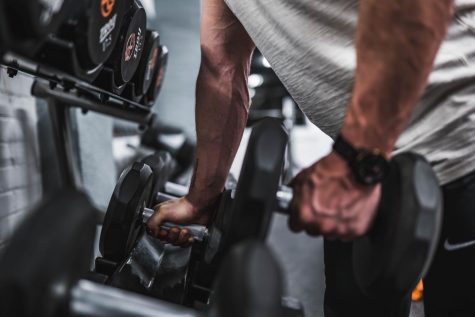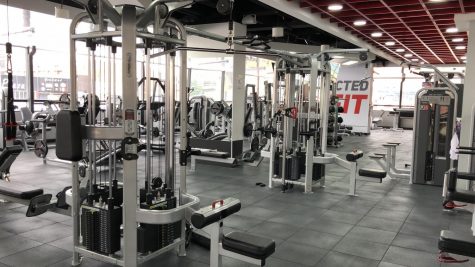Body Dysmorphia and the Pursuit of Fitness
November 10, 2021
The term “good looking” has always been subjective. There’s no single way to determine someone’s “good-lookingness”: Some might think it depends on a person’s face, style, or personality; however, a number of people take into account a person’s physique.
Physique describes the physical appearance of a person, mainly referring to height, weight, and muscle mass. There’s a spectrum of preferences regarding physique. A conventionally “ugly” person considered too tall, short, skinny, or buff by one person could be considered physically attractive by another. Yet, this scale of physical preference isn’t perfectly balanced. One end tips heavily to fashion models, who are usually thin, muscular, and attractive.

These unrealistic preferences for a “perfect body” can damage the self-confidence and health of many people. Their wish to gain what they see as the perfect physique and be viewed as attractive can lead to a drastic change in lifestyle as they focus on exercise. Initially, a person with this mentality can either be incredibly motivated to exercise or simply view it as an occasional hobby. But judging from personal experience, as well as input from some in the fitness community, the more obsessed one becomes with exercise, the more it edges into mental illness.
While exercise is rewarding, the slight boost in confidence and energy can be a false step towards body dysmorphia, time consumption, objectification, and a constant cycle of force-feeding and starving oneself. Of course, not all people drive themselves to such a level of self-torture. Even for those who do, it doesn’t happen overnight.
But in this age of social media, anybody who seeks idols in the fitness industry will be subjected to many individuals with enviable—and unobtainable—physiques. On the journey to attain these bodies, the seeming joy and confidence gained from improving one’s body blind many to their developing struggles. Despite knowing the unnatural amounts of time, money, and energy investment necessary to achieve these bodies, people still push themselves to perfection. As a result, body dysmorphia develops. Looking into the mirror, those who suffer merely see inferiority and uselessness reflected.

Devotion to the fitness industry can be a dangerous choice, for as much as it is a physical journey it is also a mental one. People who see themselves as less than they are in reality can plummet into a depression. For many who experience this, their way of dealing with these feelings is to suppress them with more exercise, continuing the unhealthy cycle of health.
The fitness industry is full of people suffering from body insecurities, and yet social media supermodels don’t convey how difficult it is to achieve the goal of a “perfect physique” and the ramifications of that pursuit. While I myself am an advocate of exercise and work out at a local gym, the issue of body dysmorphia is a disclaimer that I wish I had known about beforehand.



















